Public Seminar entitled “A Roadmap to Address Addis Ababa’s Chronic Urban Water Supply” was held at ACEWM. The study was presented by Dr. Fekadu Moreda, Senior Water Resources Engineer at Research Triangle Institute International and Dr. Tirusew Asefa, the lead for decision support group at Tampa Bay Water.
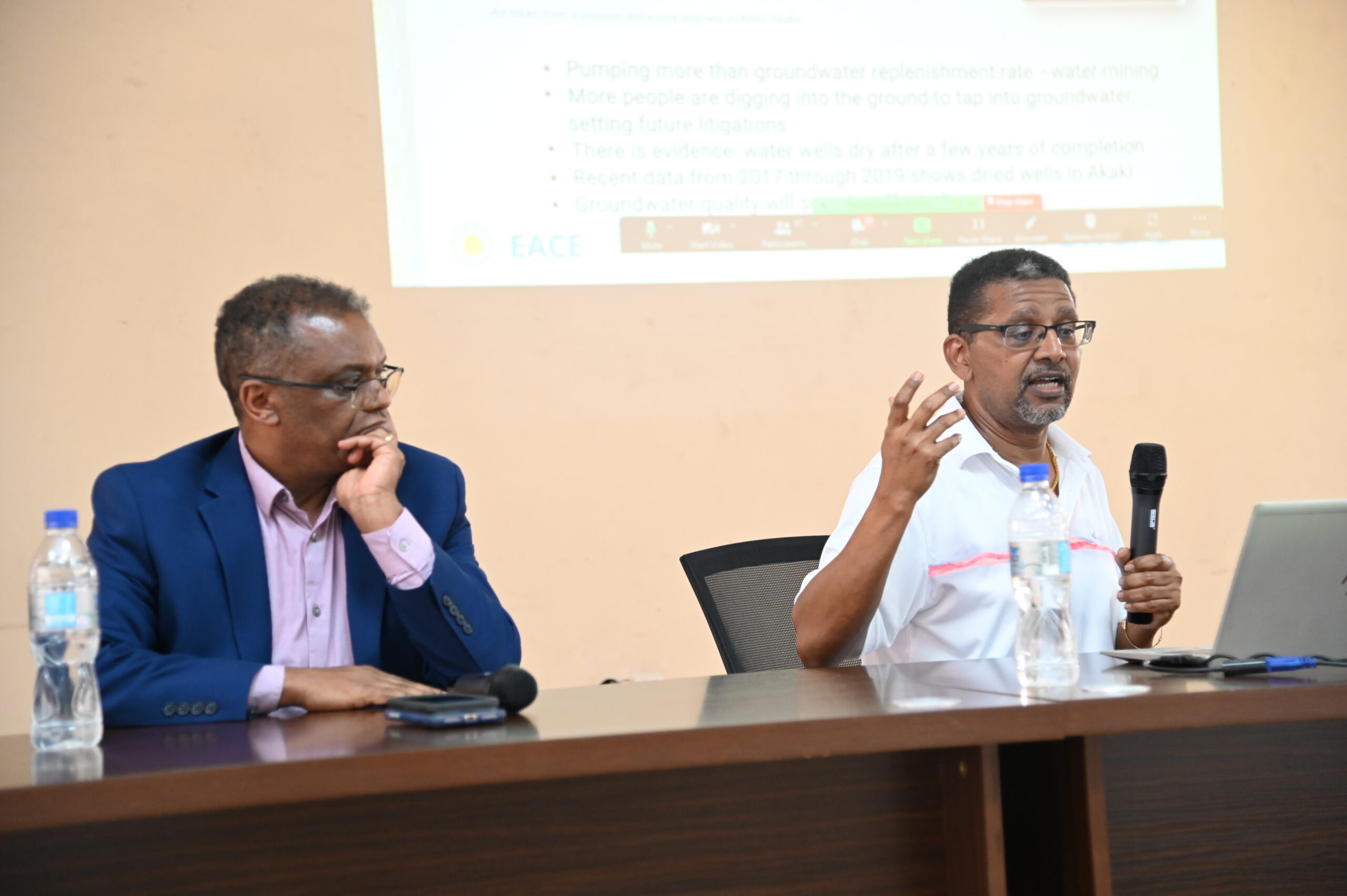
Their study addressed Addis Ababa’s chronic water problem and proposes potential solutions. The authors explored the issue’s magnitude and the various ad-hoc “solutions” implemented by residents. In summary, they stress the significant gap between water supply and demand, with only ~40% of current demand being met. Resolving this issue demands a comprehensive approach involving government authorities at all levels, the authors mentioned.
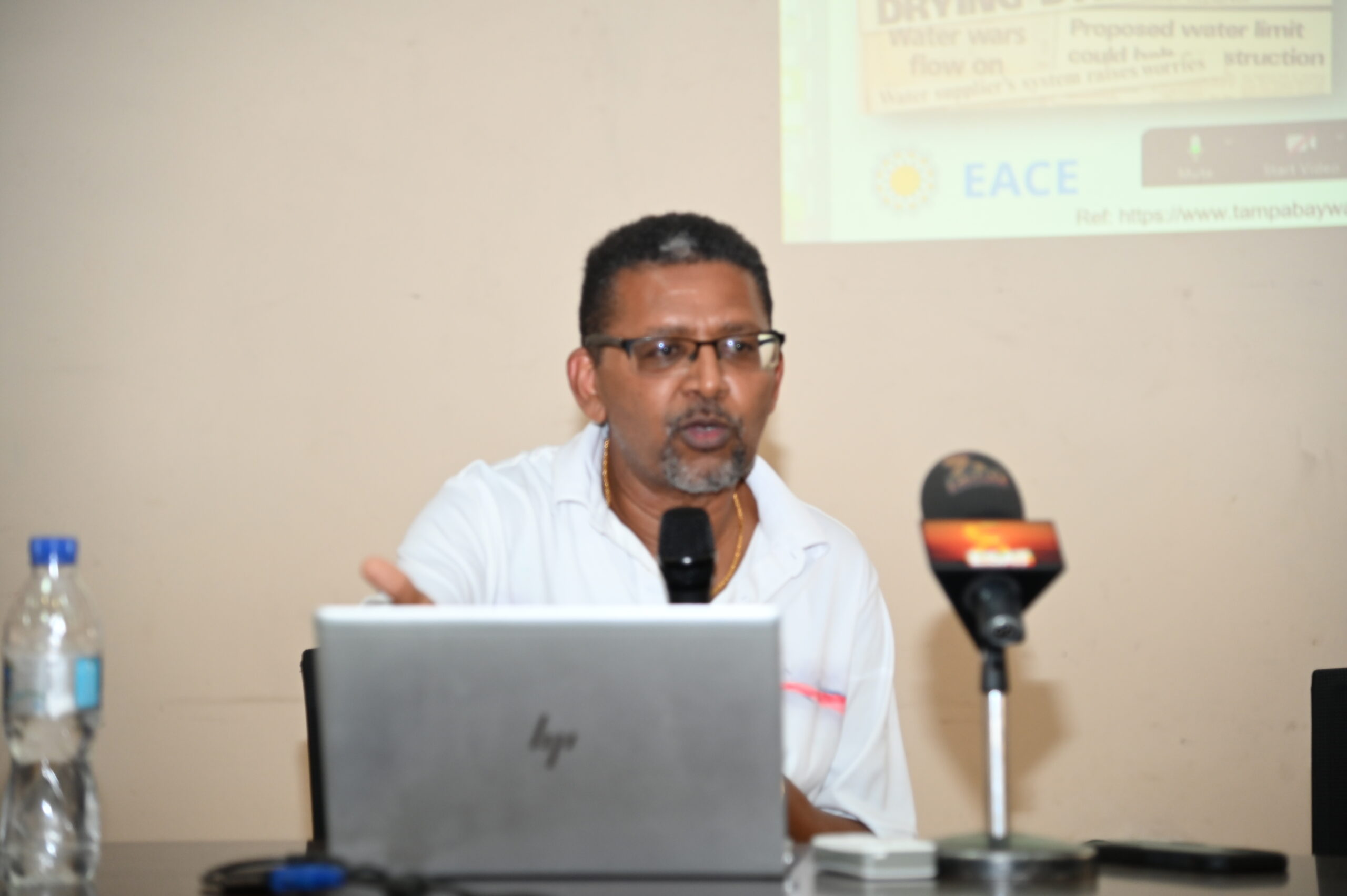
The paper presents urgently needed measures as a strategic roadmap to comprehensively address the chronic water shortage in Addis Ababa. The proposed strategy advocates for diversified investment in various water sources, including surface water and groundwater conjunctive utilization, along with inter-basin transfers. Emphasis is placed on the necessities for significant investments in water resource structures to meet both current and future water demand. Their finding also recommends integrated and collaborative efforts among the administrations of Addis Ababa City, Oromia State and Federal governments. The two authors has said This collaboration can be achieved through the establishment of a new Water Commission, tasked with planning projects, securing funds, executing major infrastructures, and providing water governance across political and regional boundaries.
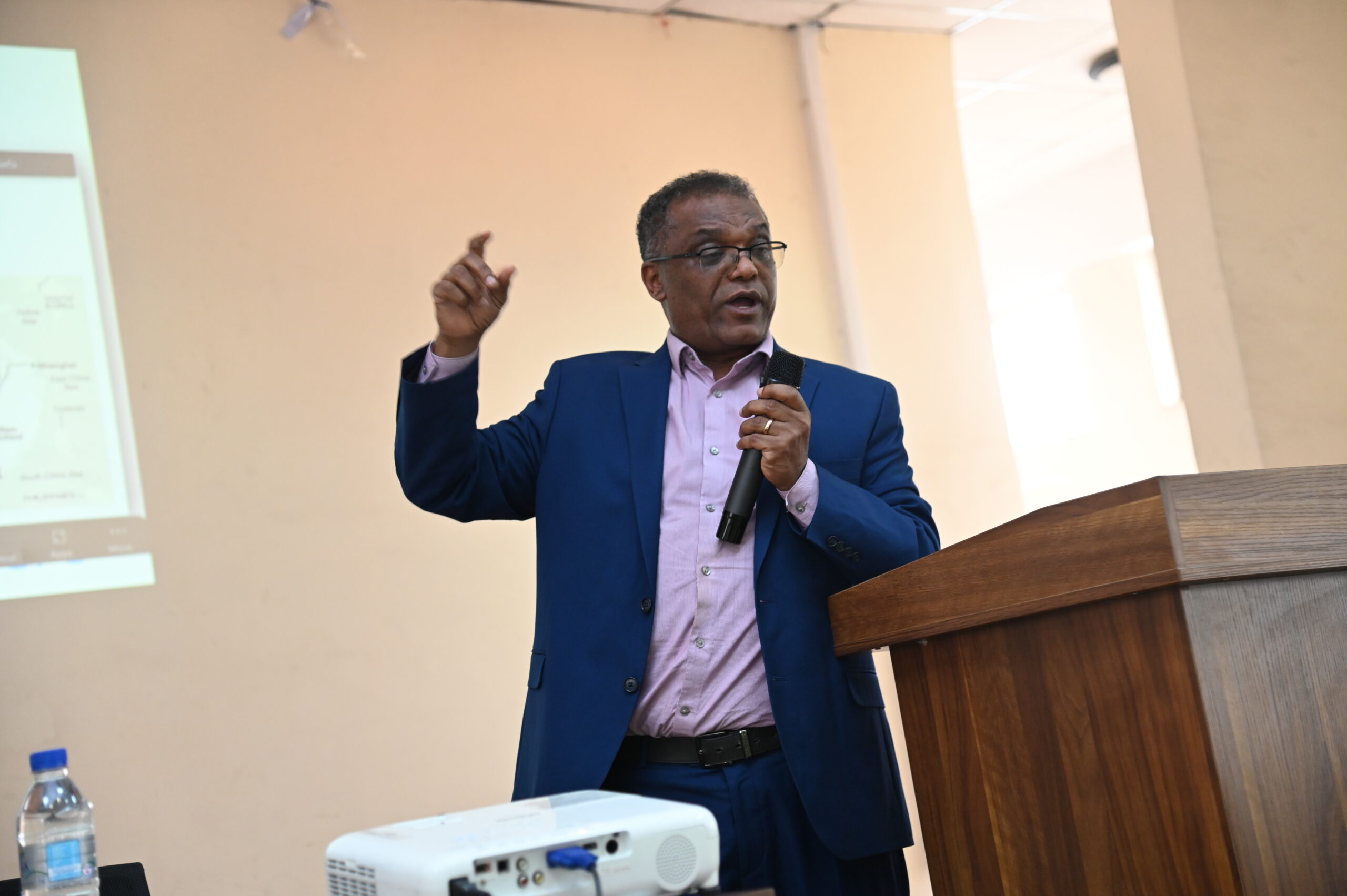
The finding also advocates for proper tariffs to achieve full cost-recovery, crucial for financing operational costs and new infrastructures. It highlights the importance of curtailing water losses to enhance overall efficiency as a key component of the broader solutions. Additionally, the integration of innovative underground storage and recovery technologies is recommended for Addis Ababa, coupled with the establishment of a comprehensive institutional framework. These practices, proven effective in numerous global cities, serve as exemplary benchmarks for sustainable water management.
On the seminar Participants raised different questions and discussions were made.
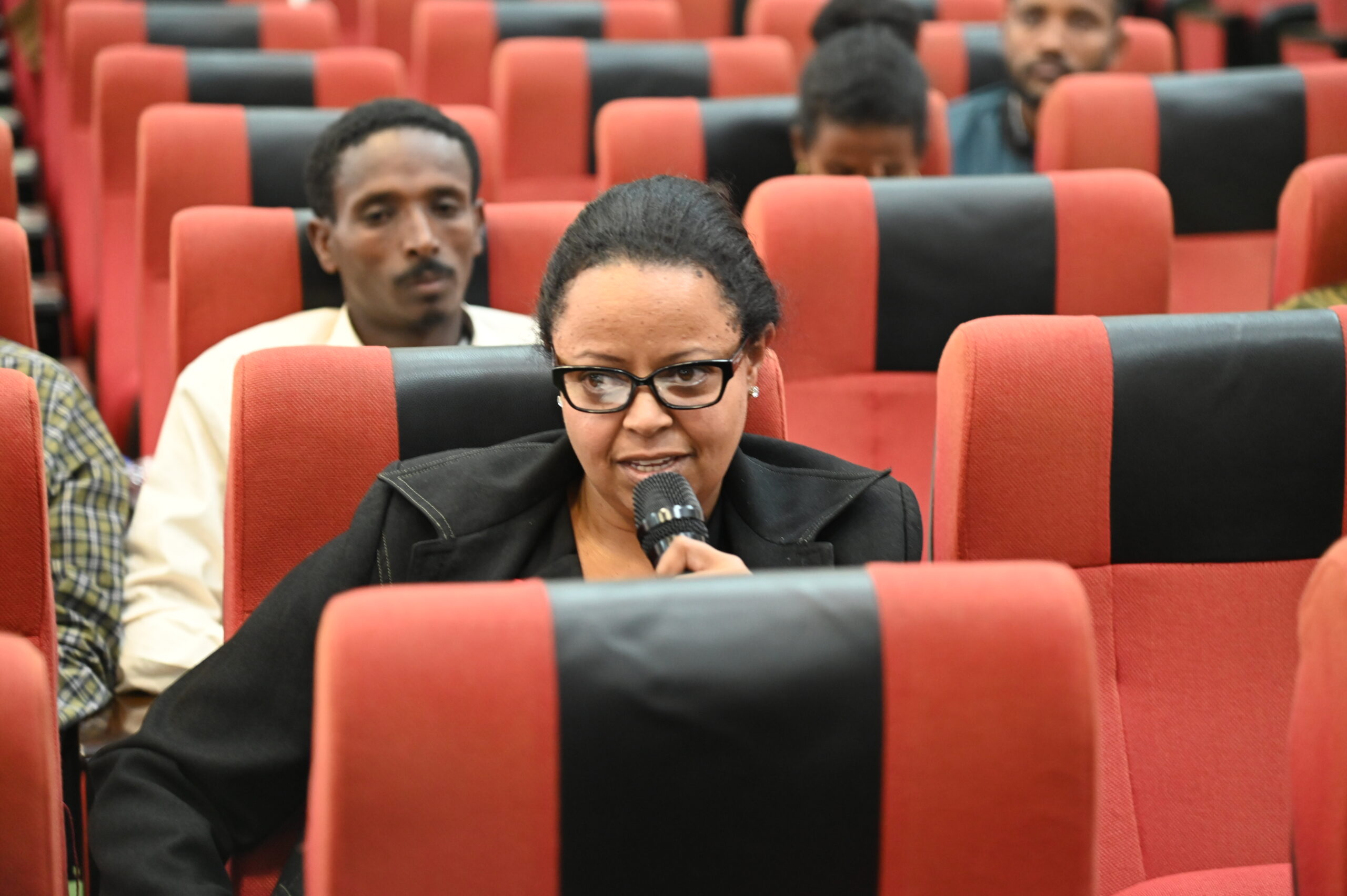
Water day celebrated with the theme “Water for Peace” by Africa center of excellence for water management in collaboration with and college of natural and computational sciences.
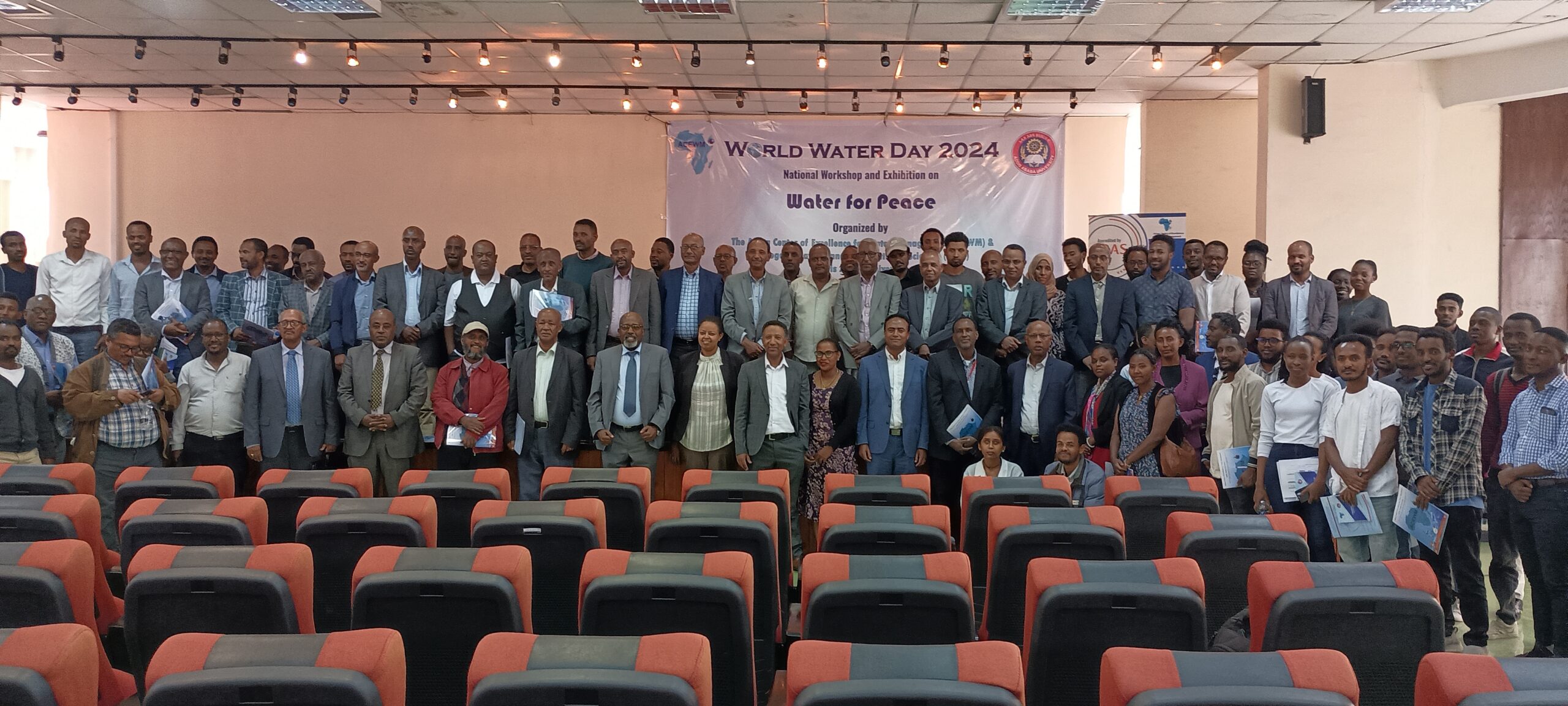
In a remarkable celebration focusing on the theme “Water for Peace,” the Africa Center of Excellence for Water Management and the College of Natural and Computational Sciences came together to celebrate World Water Day 2024. The event sought to underline the role of water as a means for peace, cooperation, and sustainable development in various communities and regions around the world. The president of Addis Ababa University, Dr Samuel Kifle delivered an opening speech through his representative Professor Tadese Fetahi emphasizing the crucial link between access to clean water, social harmony, and global stability.
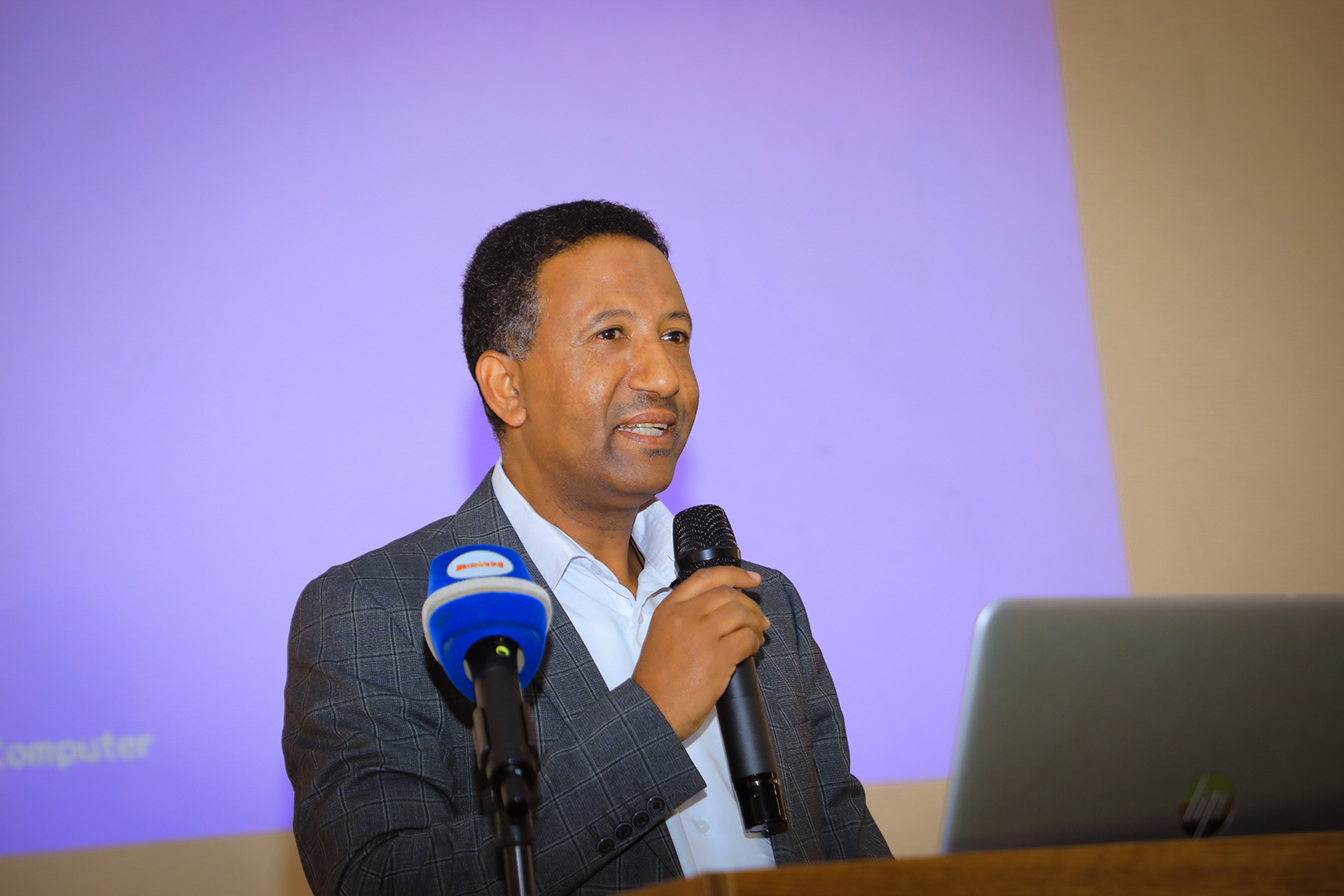
The Dean of College of Natural and Computational sciences Prof. Tileye Feyissa have also encouraged attendees to recognize water as a key factor in fostering peace and prosperity.
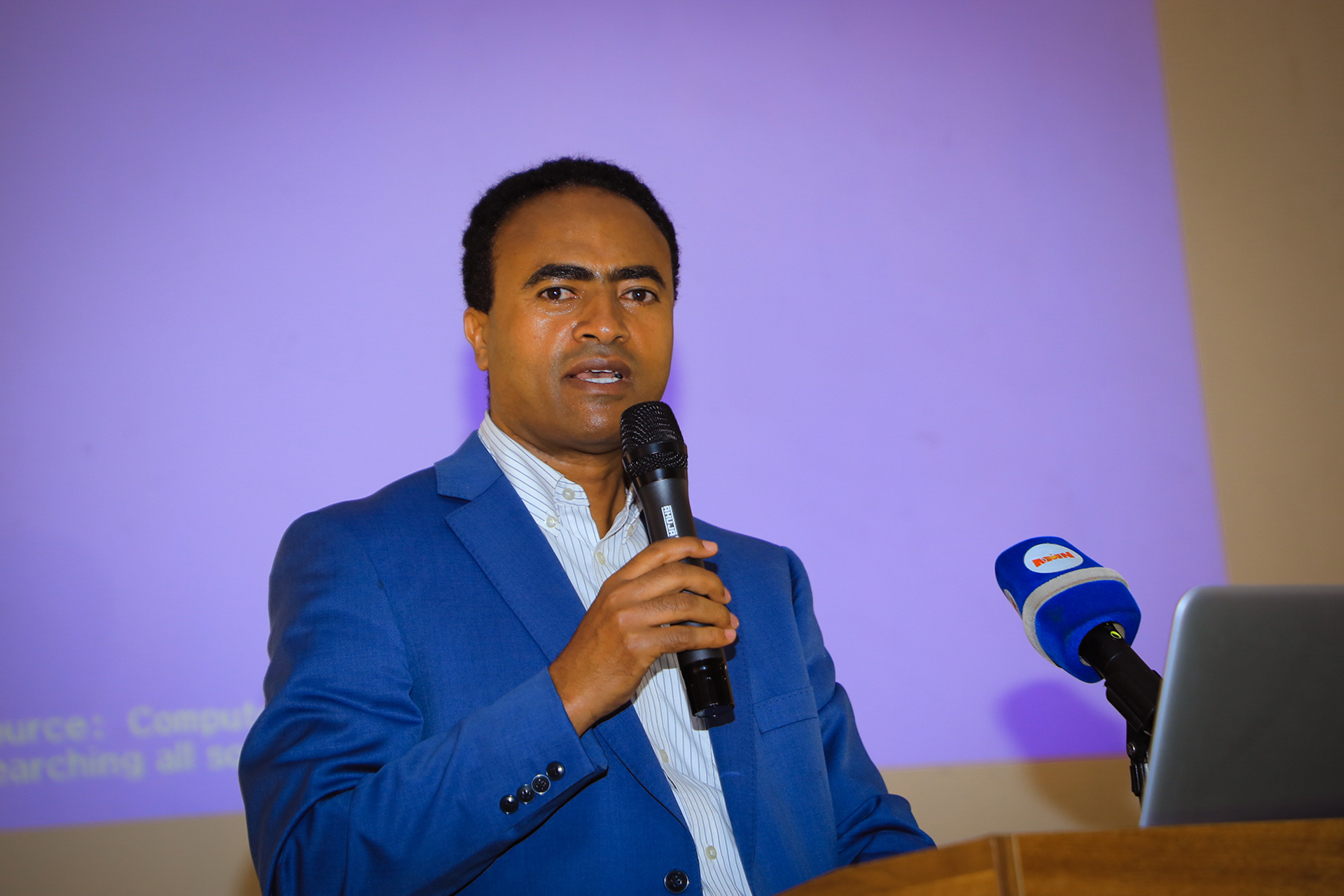
The Director of ACEWM Prof. Feleke Zewge on his part presented achievements and best Practices of the center regarding learning-teaching, research and innovation, community service, and organizational capacity development.
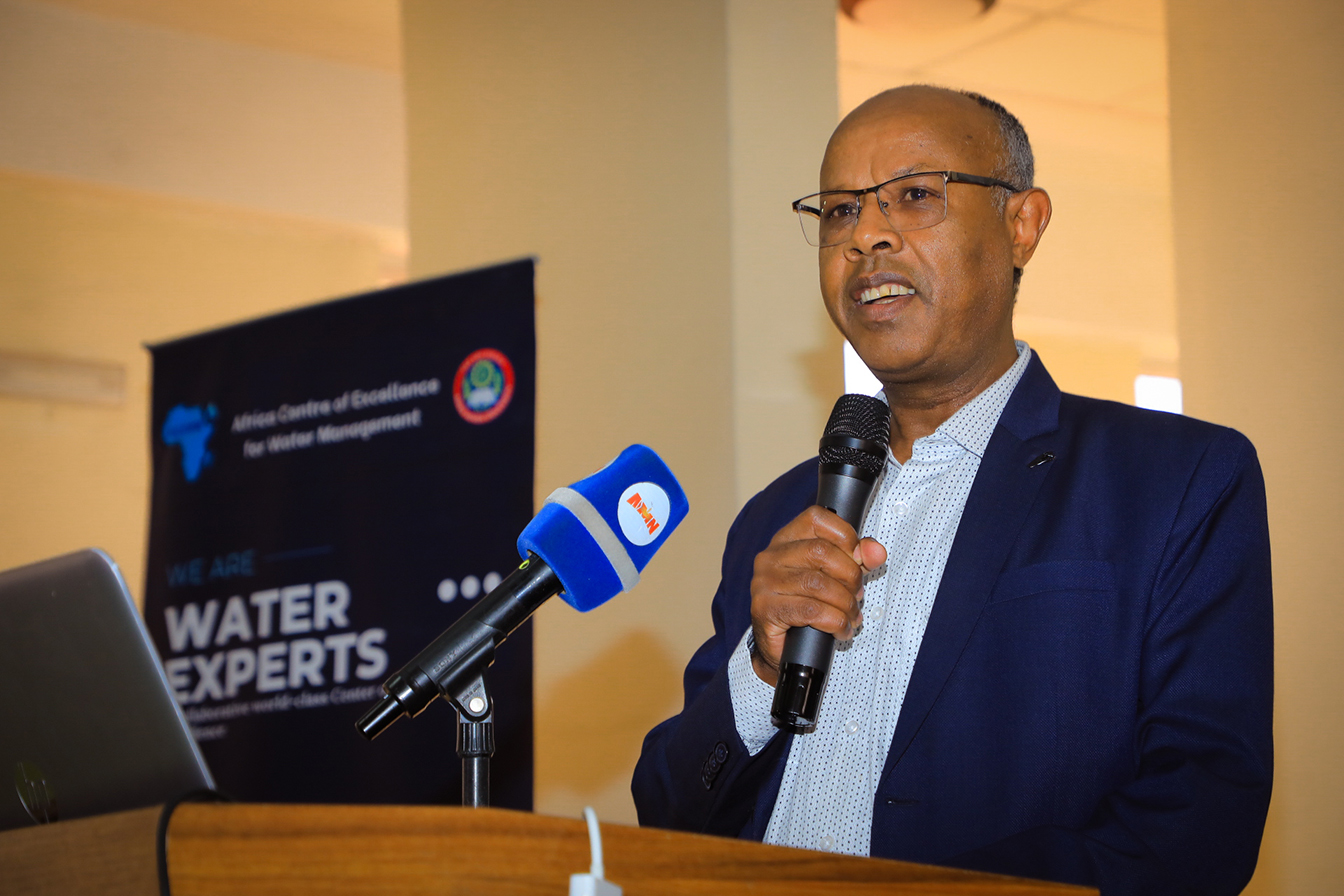
Throughout the event, participants engaged in interactive workshops, enriching discussions, and awareness-raising activities to underscore the importance of water conservation and equitable water access. Dr. Yacob Arsano, Prof. Esayas Alemayehu, Prof. Tigistu Haile, Dr. Yemane G/Selassie and Dr. Adey Feleke are among experts and scholars who shared their insights on the interconnectedness of water resources, conflict prevention, and international cooperation in addressing water-related challenges.
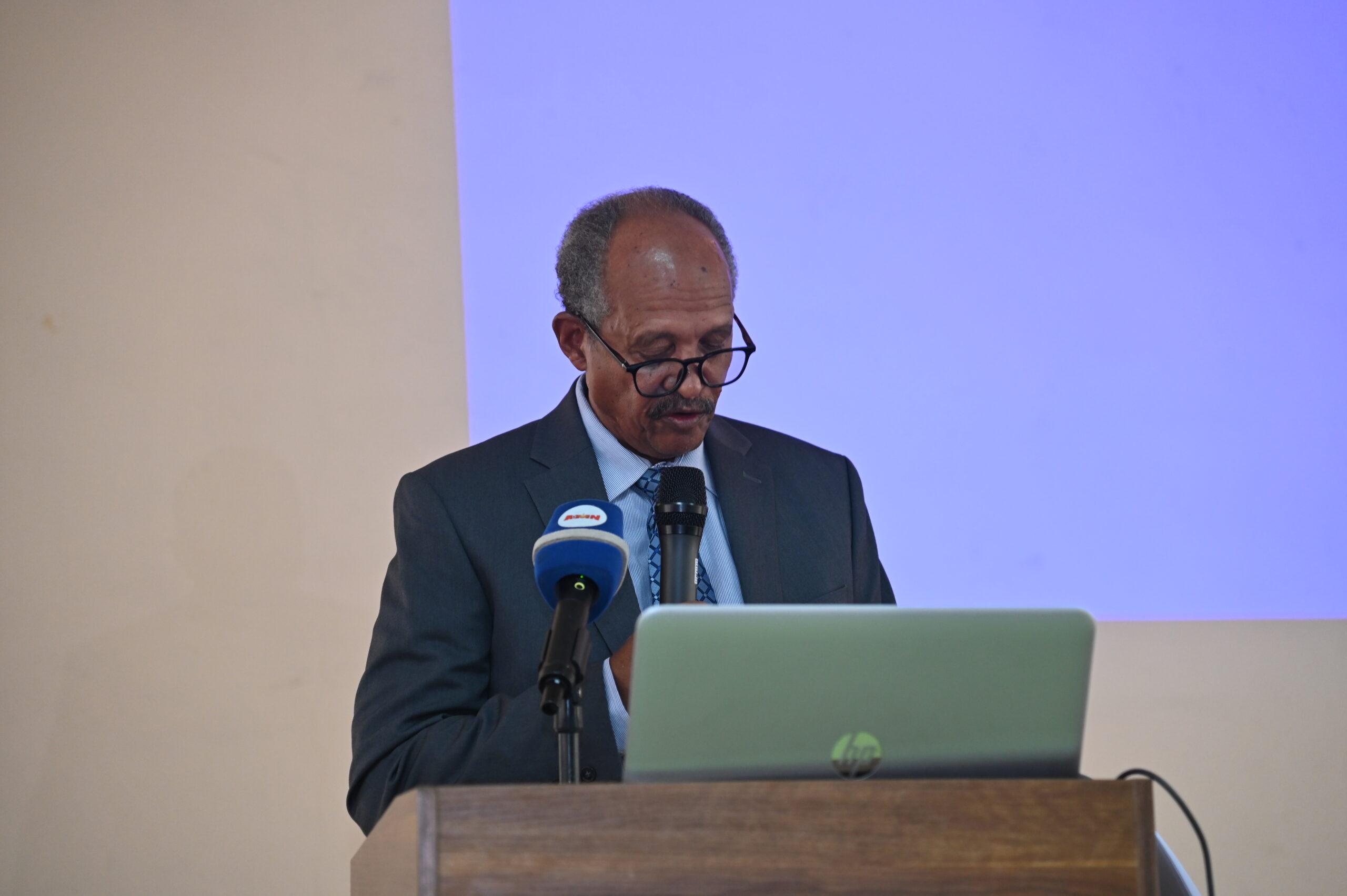
The topics of their presenatation are Water for Prosperity and Peace, Contribution of Science and Technology for Sustainable Water Management in the Nile Basin, Improving Water Supply in Schools, and Managing Textile Wastewater in the Ethiopian Context: Challenges and Opportunities and; Resource Recovery and Water Reclamation from Municipal Wastewater respectively.
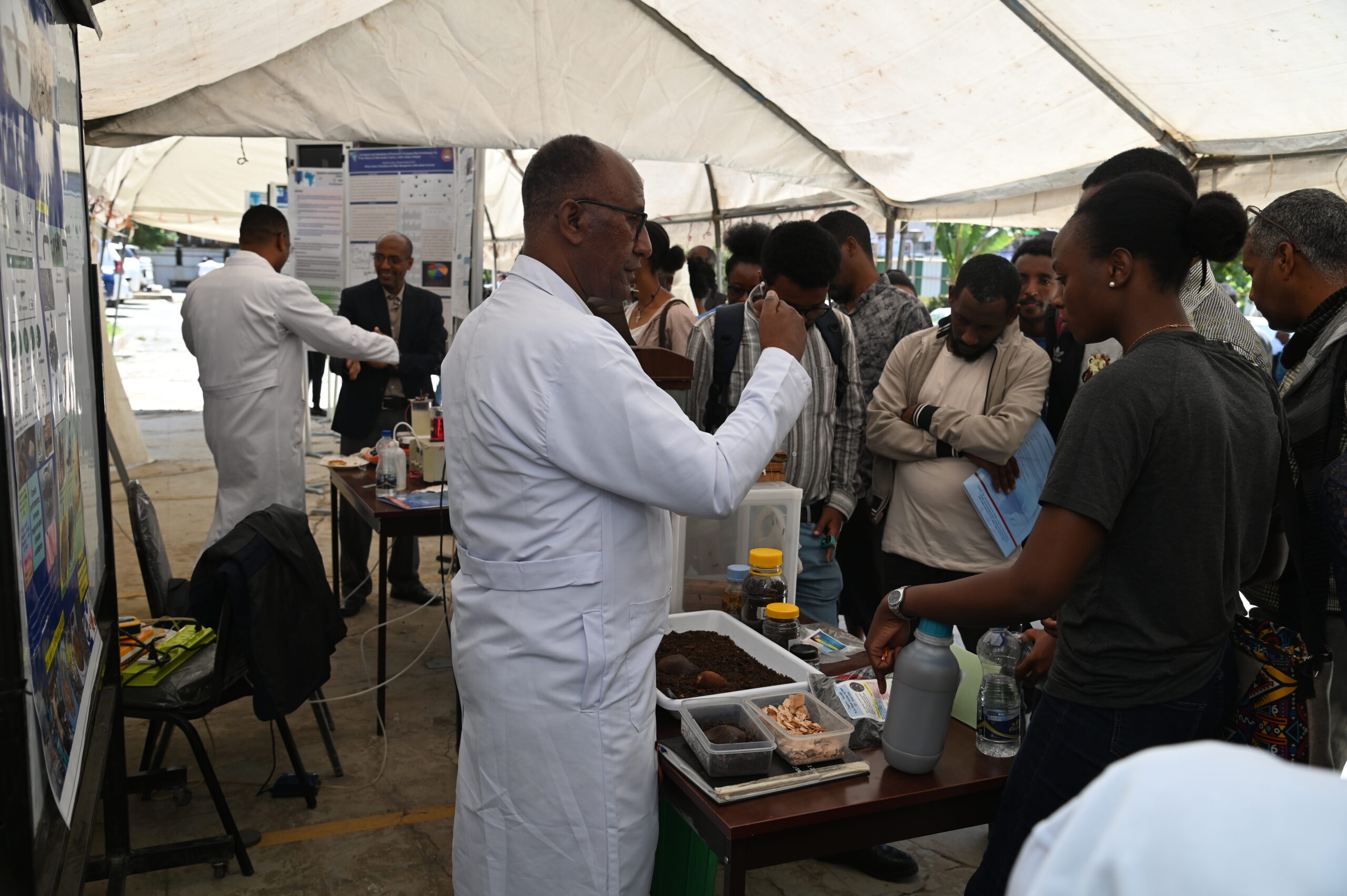
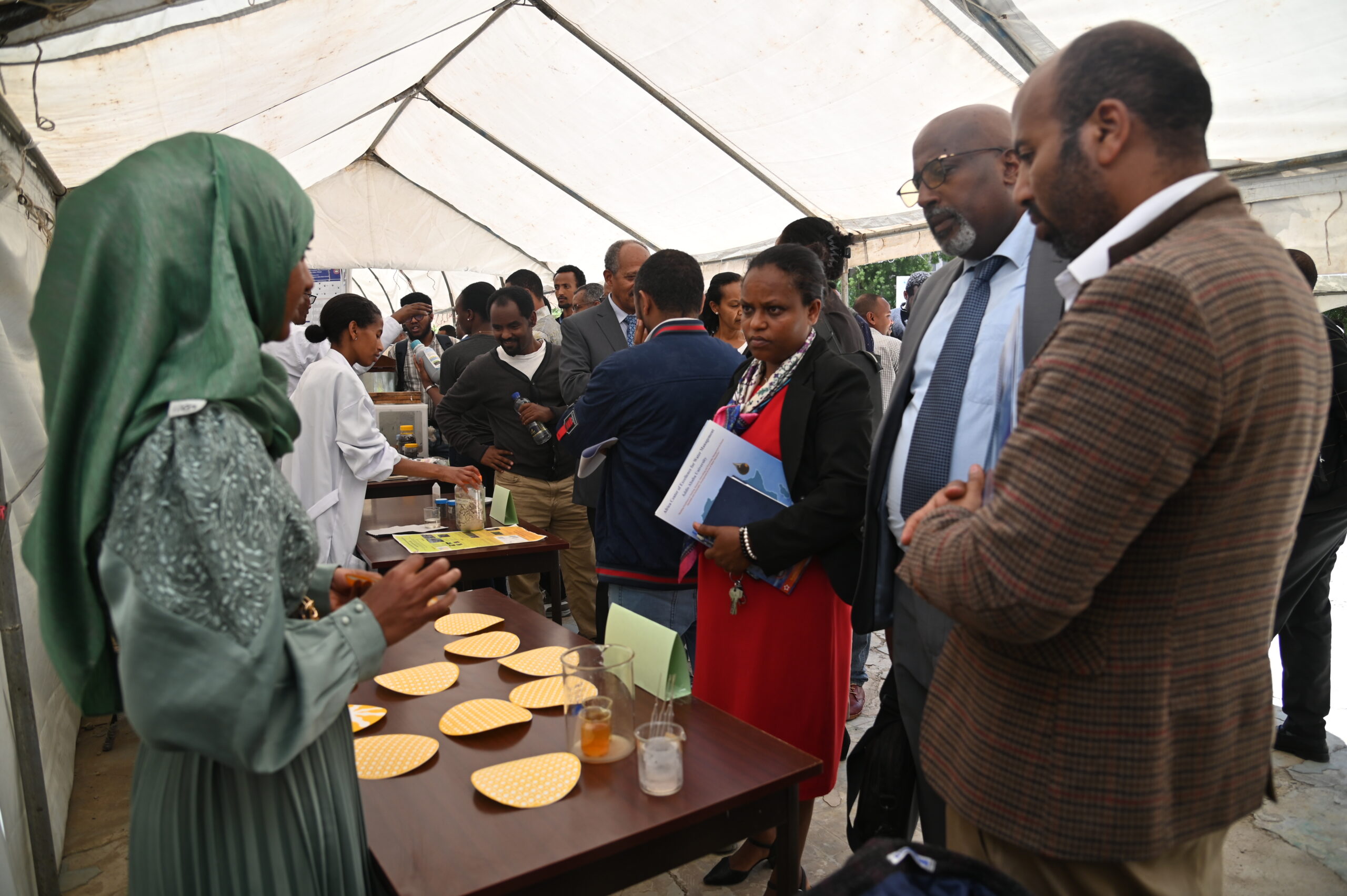
Five PhD candidates namely Birtukan Abebe, Gilbert Chifundo, Mathewos Hailu, Wondimu Kebede, Thandile Gule have also presented promising findings regarding water Science and technology. The topics of their presentation are Water-Footprint Accounting for Water-Intensive Products: Case study in the Upper Awash River Basin, Ethiopia, A Novel Wastewater Treatment Prototype for Heavy Metal Removal, The Impact of Micro plastics in the Aquatic Environment in the Ethiopian Rift Valley Lakes and Reservoirs, and Removal of Pharmaceuticals from Wastewater with Coupled Adsorption/Electrochemical Oxidation Process and Sustainable Water Resources Management for Addis Ababa City respectively.
Technology and Laboratory Exhibition and Demonstration have also been part of this year’s water day celebration.
The cooperation between the ACEWM and the College of Natural and Computational Sciences in organizing Water Day underscores their pledge to move ahead research, education, and outreach initiatives in the area of water sciences. By championing the theme of “Water for Peace,” the event give emphasis to the transformative power of water in building bridges, nurturing dialogue, and encouraging a more peaceful and sustainable world for all.
French national successfully defended his PhD dissertation at ACEWM on December 19, 2023. Dr Stanislas’s research topic is entitled “Efficacy of Pesticide Removal in Vertical-Flow Constructed Wetlands for Application in the Floriculture Industry”. His work contributed to a better understanding of pesticide dynamics under various operating conditions for the vertical flow CW, and demonstrated that modeling is a practical tool to assess and predict the performance of the CW with detailed spatial and temporal information.

The developed model, in contrast to black-box models, considers the key physicochemical processes behind pesticide removal in the CW, including a hydraulic model to account for the varying water saturation. The model was tested on the pilot-scale vertical flow CW, and simulated the fate of two different pesticides.
Due to the nature of mechanistic model, the developed model is readily configurable using existing chemical property values that can be retrieved from the literature, and will become a versatile tool in terms of the applicability to other pesticides.
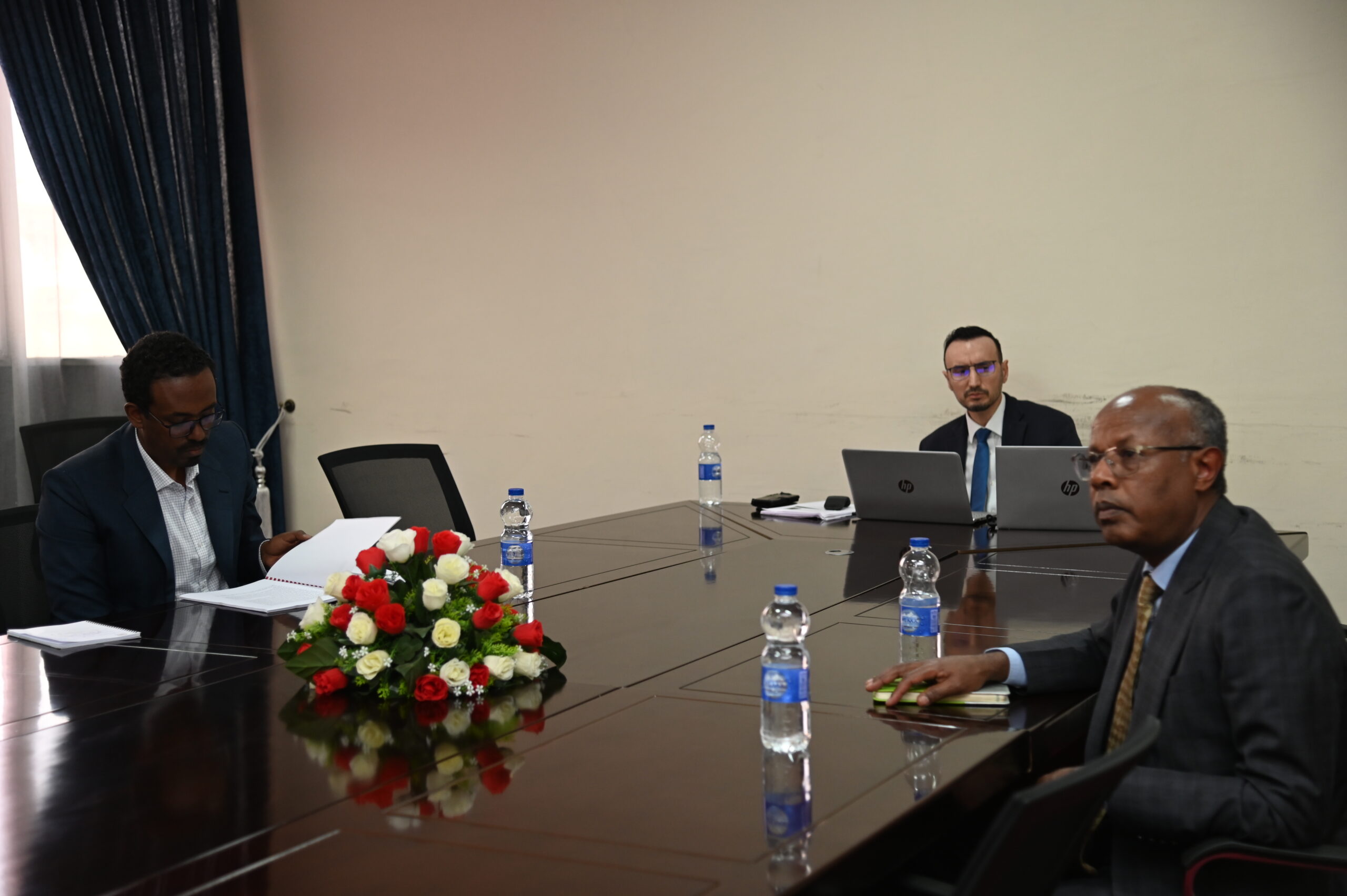
Dr. Stanislas not only immersed himself in the rich Ethiopian culture but also displayed an extraordinary cultural integration; where he and his French wife gave their two kids Ethiopian names called Eden and Zekarias.
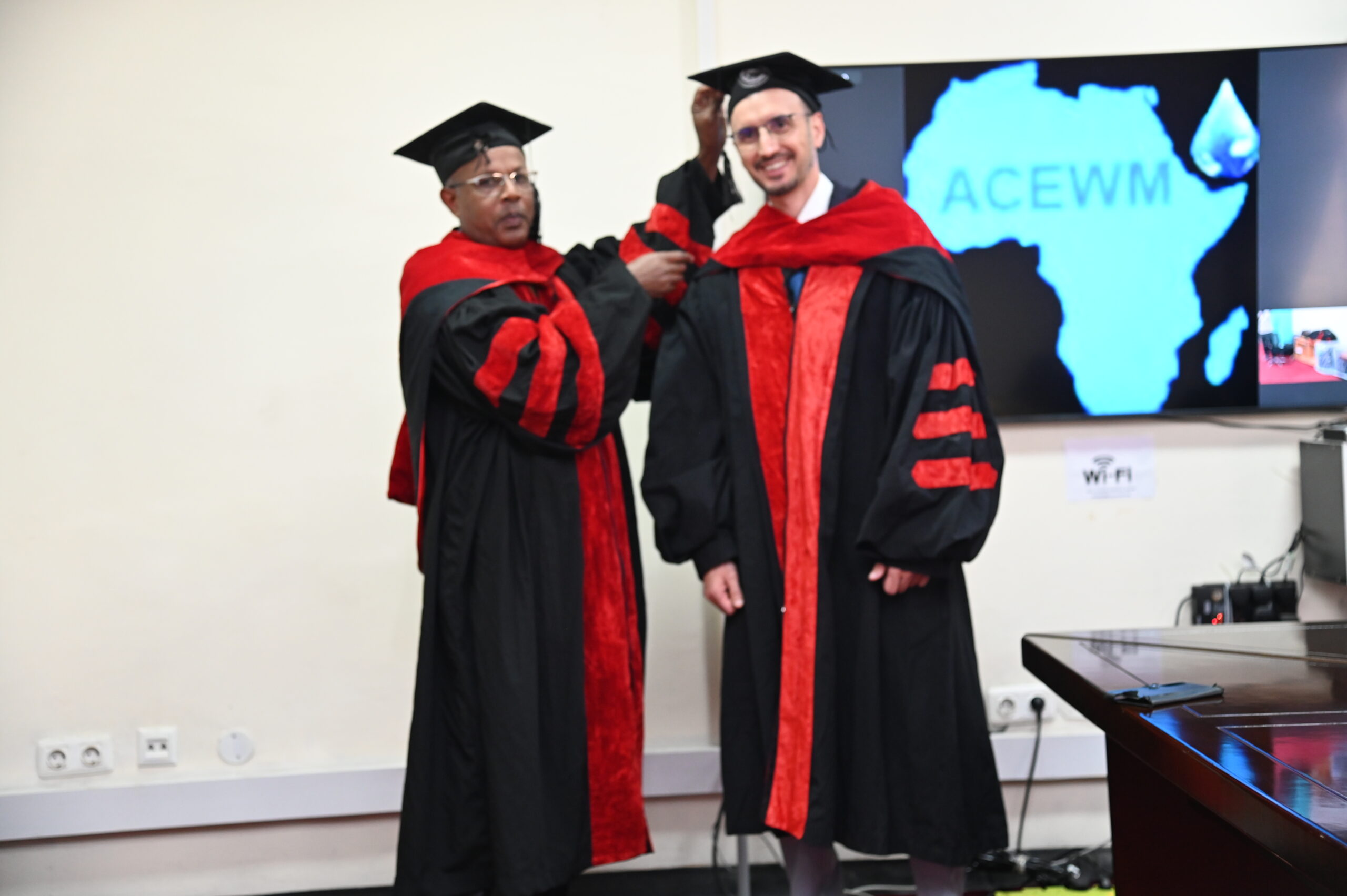
His supervisor Prof. Feleke Zewge said throughout his studies, Stanislas’s Amharic fluency became a key asset in his interactions enabling him to delve deeper into his chosen field of study and engage in meaningful discussions.
The day of Stanislas’s dissertation defense was a significant circumstance, filled with a sense of pride and achievement. As he stood before the esteemed panel of examiners, consisting of the Chairperson Dr. Beteley Tekola, Deputy Director of ACEWM, his internal examiner Prof., Dr.-Ing Esayas Alemayehu of Jimma University and his external examiner, Prof. Nigus Gabbiye of Bahir Dar University, he presented his research with confidence and fluency in Amharic, impressing all those in attendance.
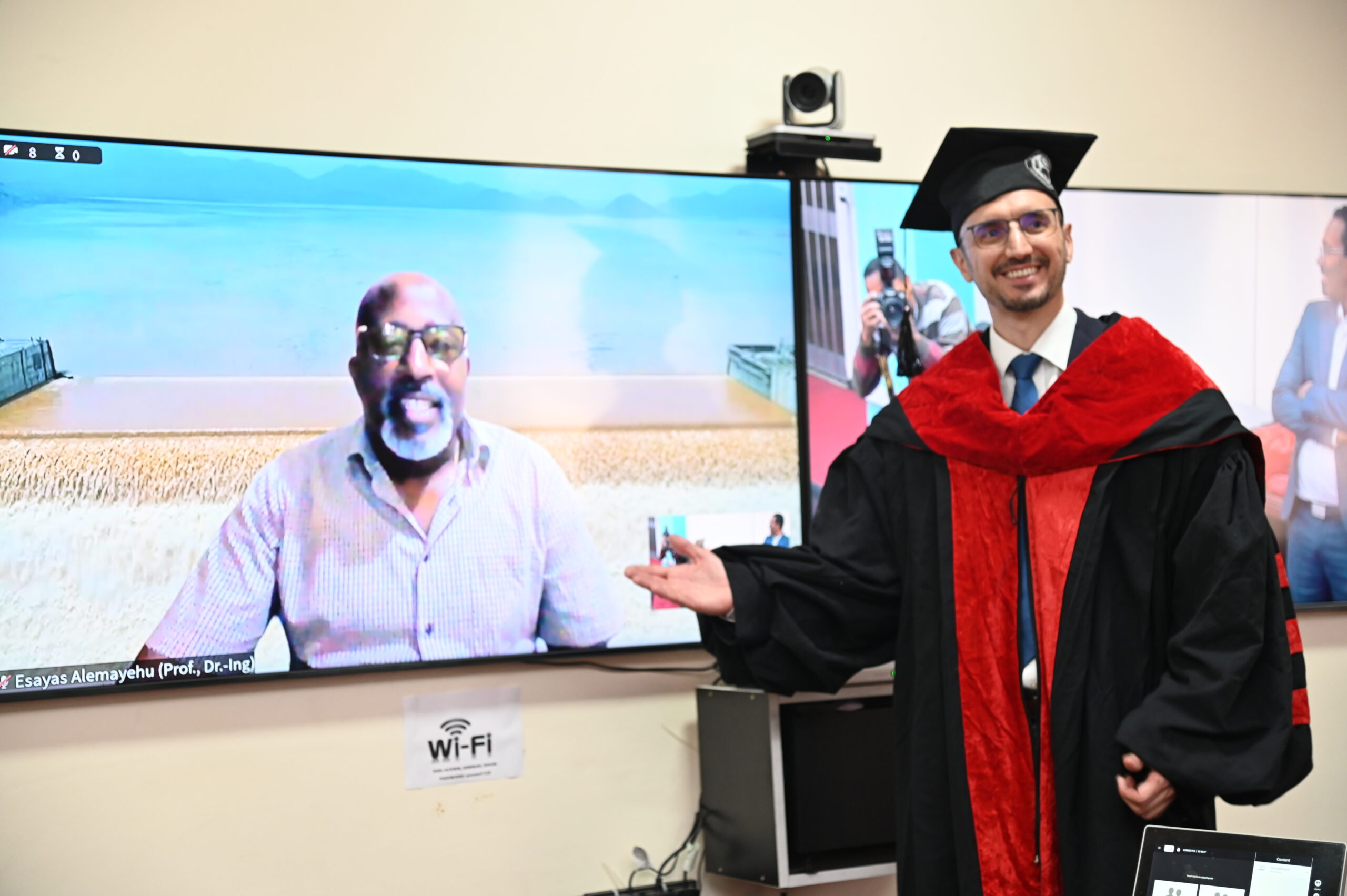
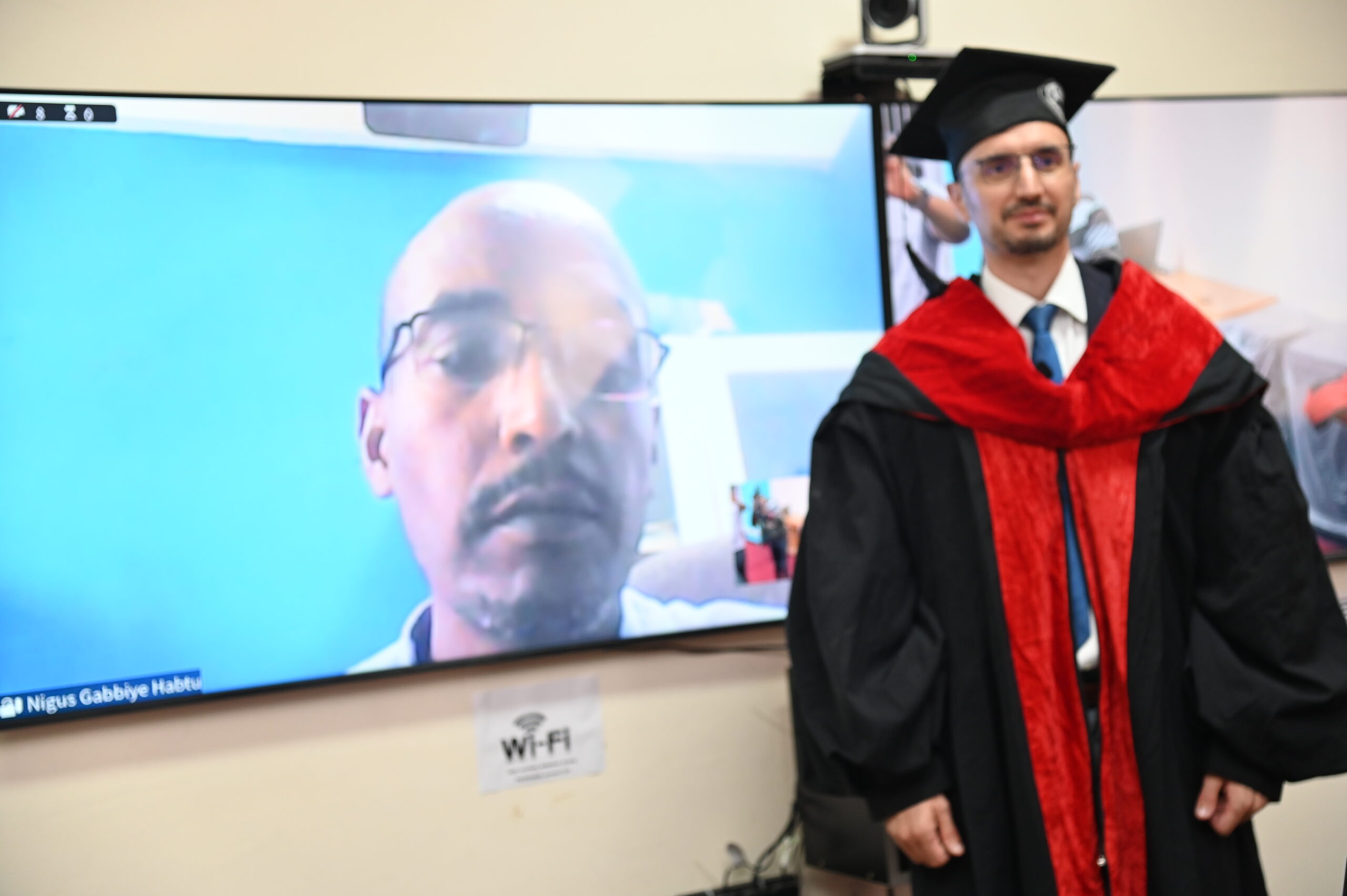
Prof. Feleke Zewge, the Director of ACEWM is the main supervisor of Dr stanisles’s Dissertation where as Dr. Yoshihiko Inagaki from Waseda University, Tokyo, Japan is Co supervisor.
Prof. Feleke Zewge said Dr. Stanisles’s story serves as an inspiration to all who face barriers of language, cultural differences, and distance. He further stated ACEWM will continue being Regional Center of Excellence by producing international water experts.
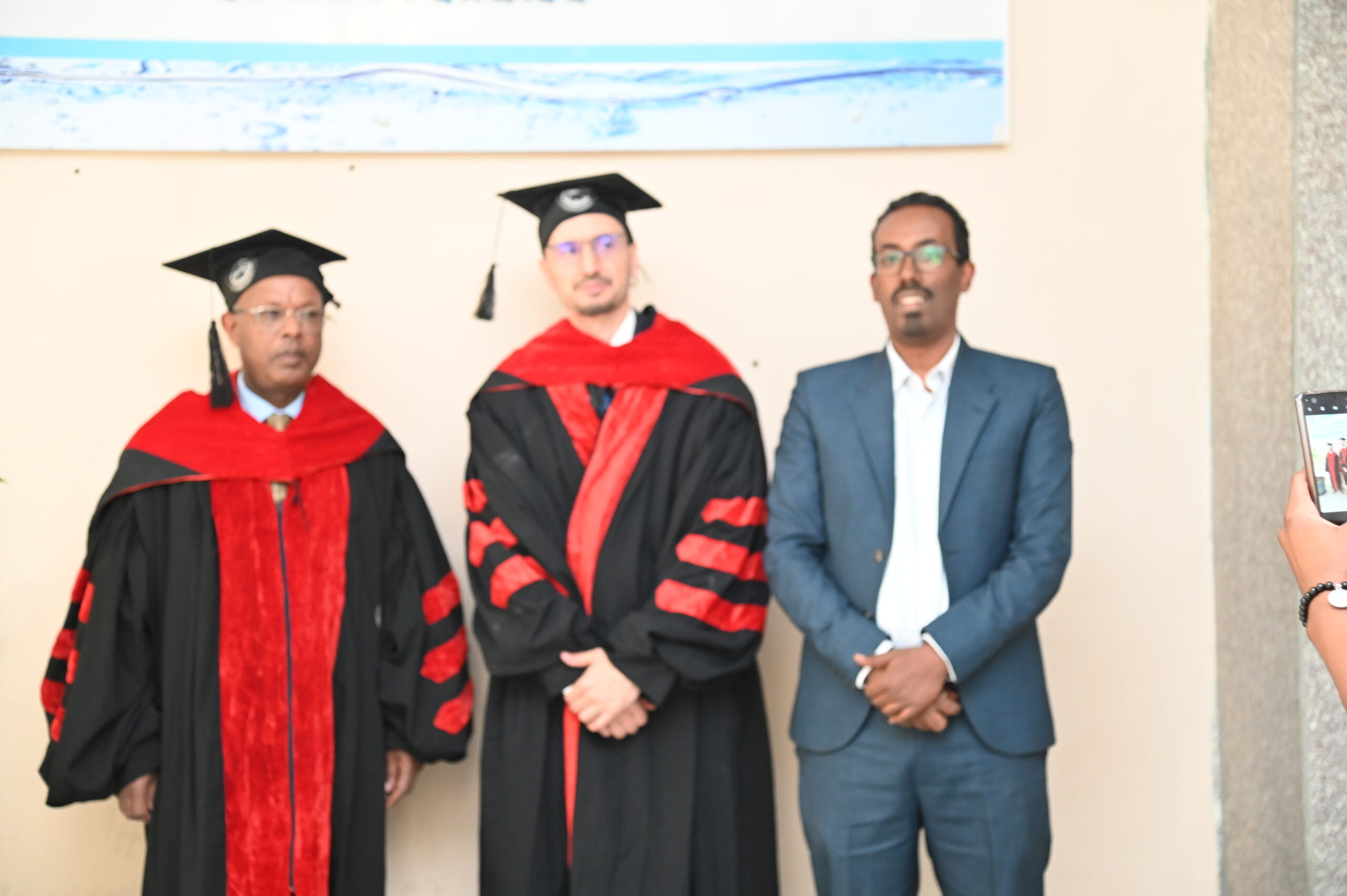
As Dr stanislas go a head in his professional journey, armed with his PhD in hand and his fluency in Amharic, he expressed his readiness to contribute to the international discourse on water science and technology.
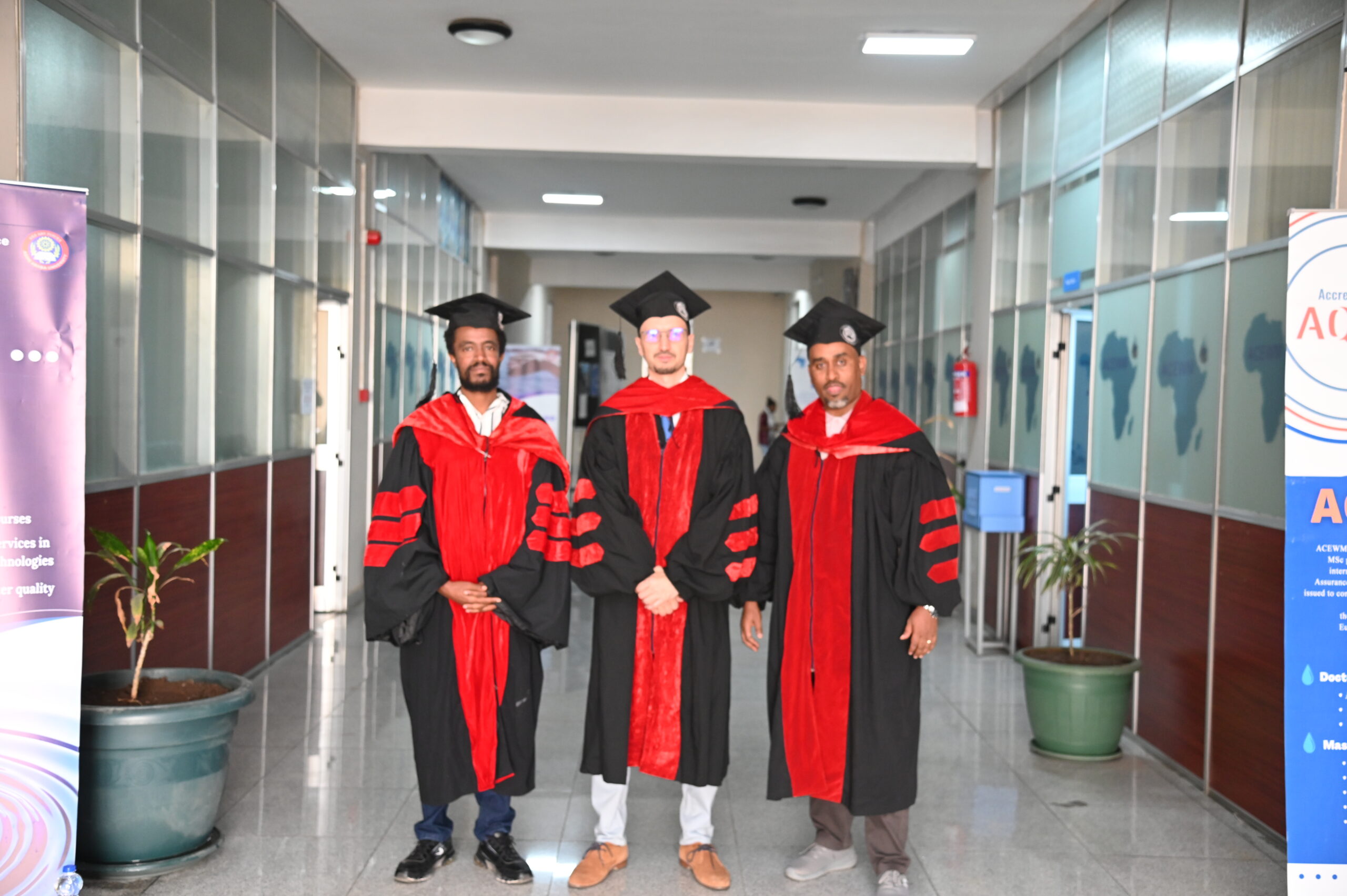
ACEWM HAS FINALIZED ITS FIRST GRADUATE TRACER STUDY (GTS)
The Africa Center of Excellence for Water Management (ACEWM) put the quality and relevance of its educational programs as its utmost priority since its commencement of actual academic operations in the 2017/18 academic year.
in order to evaluate program effectiveness, improve curricula and support services, enhance graduate employability, strengthen industry partnerships, engage alumni, and maintain institutional accountability; it is essential to undertake a Graduate Tracer Study(GTS).By tracking the career outcomes and experiences of graduates, the Center is aiming to make data-driven decisions to align its programs with water and other sector needs, prepare students for the job market, and ensure educational programs remain relevant and valuable.
To this end, GTS has been conducted for both Master’s and PhD graduates in the various specialization tracks of the Center. As the ACEWM is a relatively new Center, the total number of graduates, who have completed their studies, is limited. Accordingly, the graduate tracer study covers all graduates from the Center and students who have successfully completed all the requirements of the AAU and the Center for completion of their studies. A non linear platform has been used through a well-designed questionnaire to be completed by all graduates. The survey targets all MSc and PhD graduates of ACEWM from 2018/19.It considered a5% margin of error and an 80 percent minimum response rate. The online survey was sent to all graduates via their email addresses. The total number of potential respondents for whom the survey instrument is sent for are the 12 PhD and 68 MSc graduates of the center by the time of the survey. From these, a total of 66 responses were collected accounting for 55 MSc and 10 PhD graduates which correspond to 82.5 percent response rate.
The survey instrument has been designed to align with the Center’s objective to further strengthen the quality and relevance of its programs.
In general, the study revealed that ACEWM is equipping graduates to the level required and aspired by students. Moreover, the tracer study highlighted the need for more resources in line with accommodation, recreational and medical facilities. The finding also indicated the need for future refresher specialized short courses to continuously upgrade skills of graduates relevant to the demand of their work area.
For more information, please visit our website link https://acewm-aau.org/research-documents
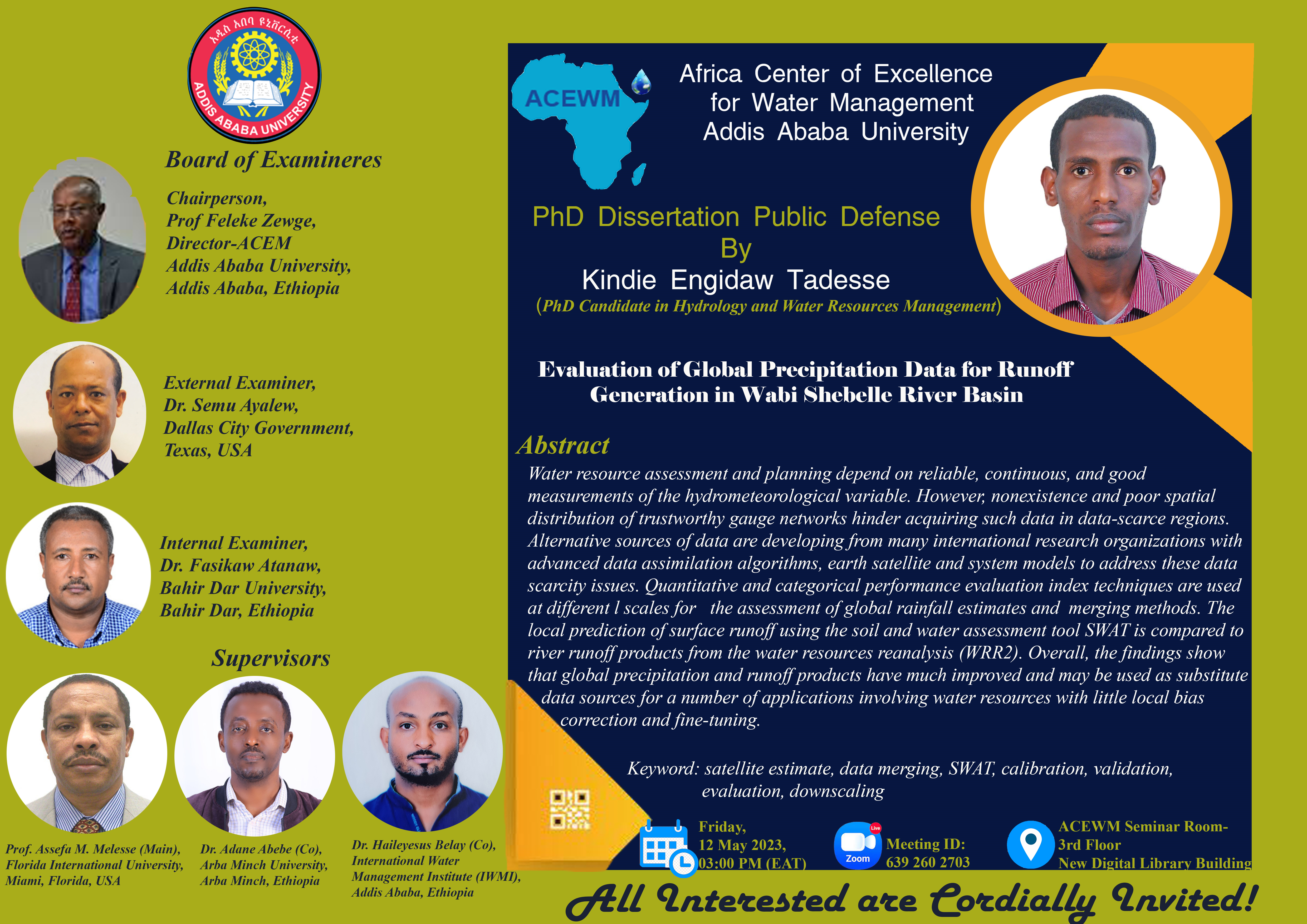
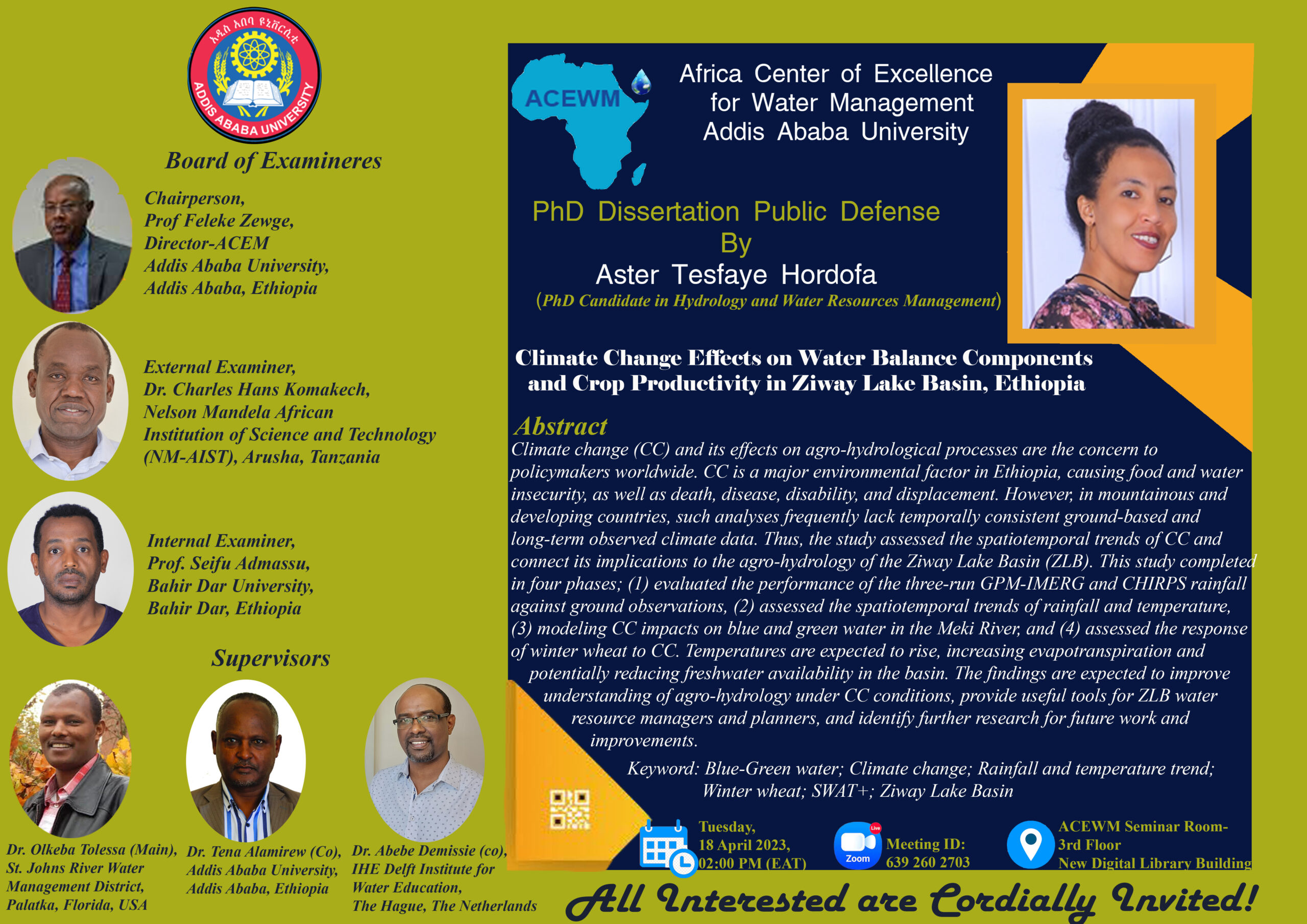
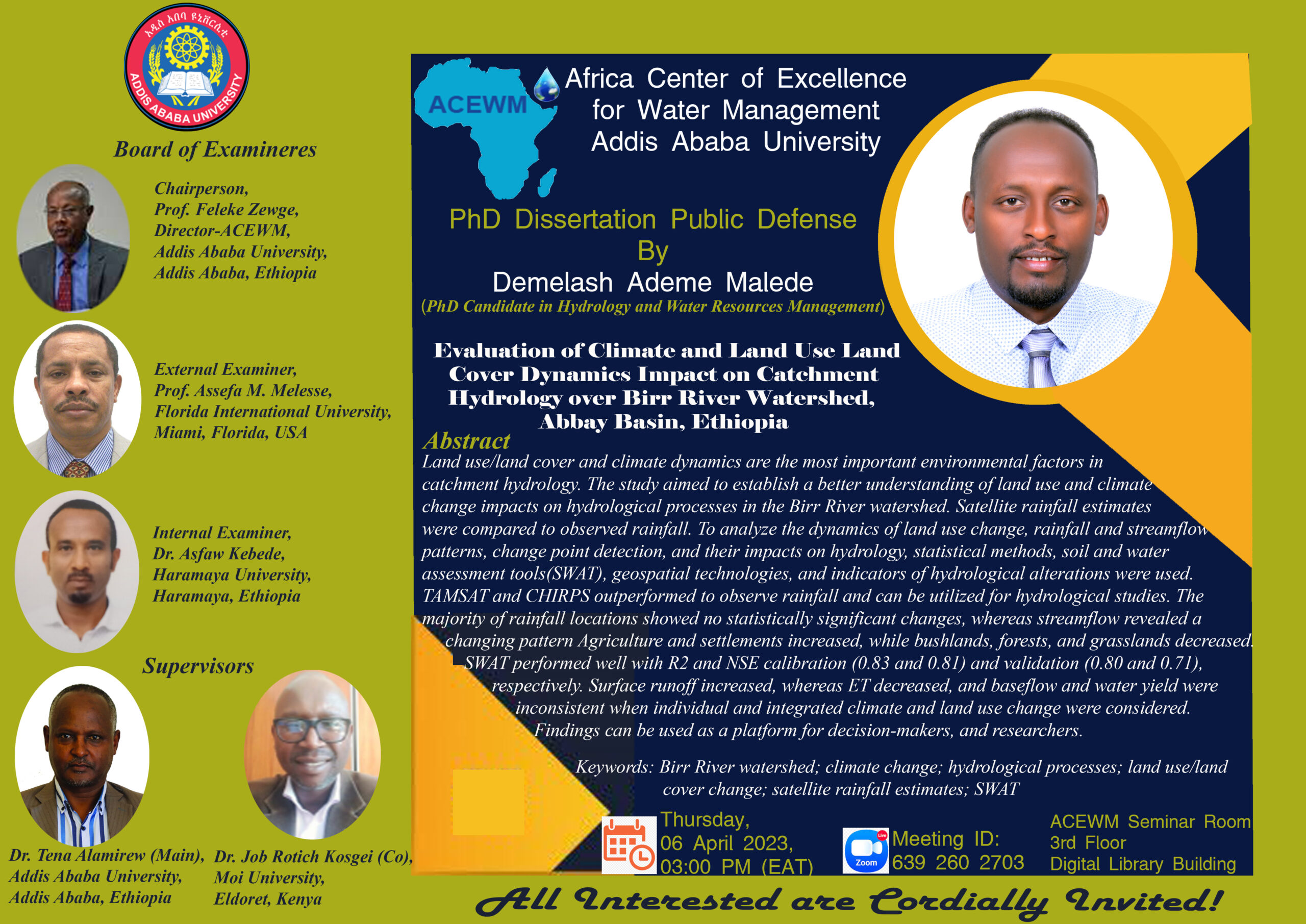
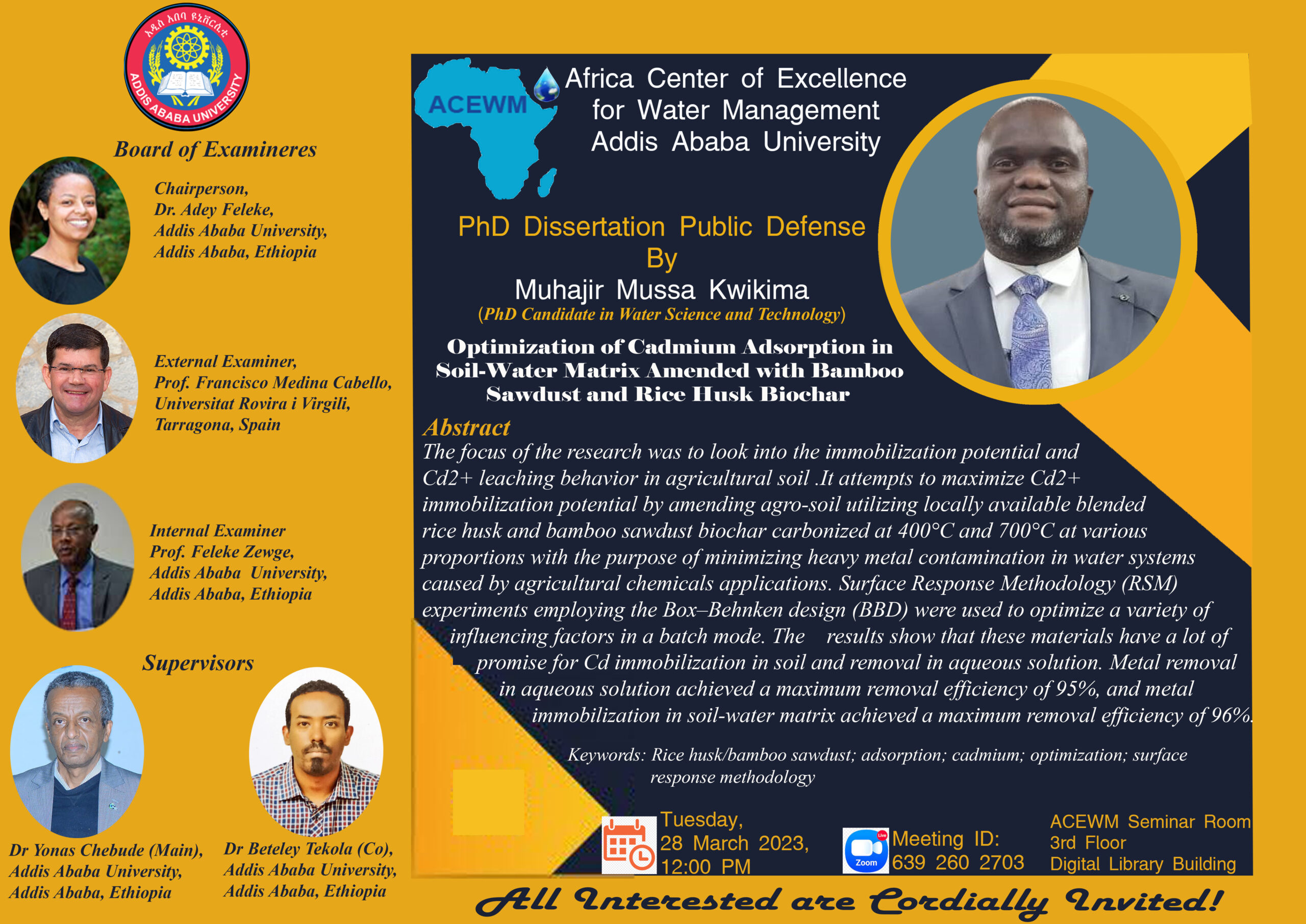
MSc students of ACEWM attended the All4WasH summer school program held from July 1 to 31, 2022 in Ghana.
The summer school program was hosted by the Regional Water and Environmental Sanitation Centre, Kumasi (RWESCK) of the College of Engineering of Kwame Nkrumah University of Science and Technology (KNUST) in collaboration with the Norwegian University of Science and Technology.
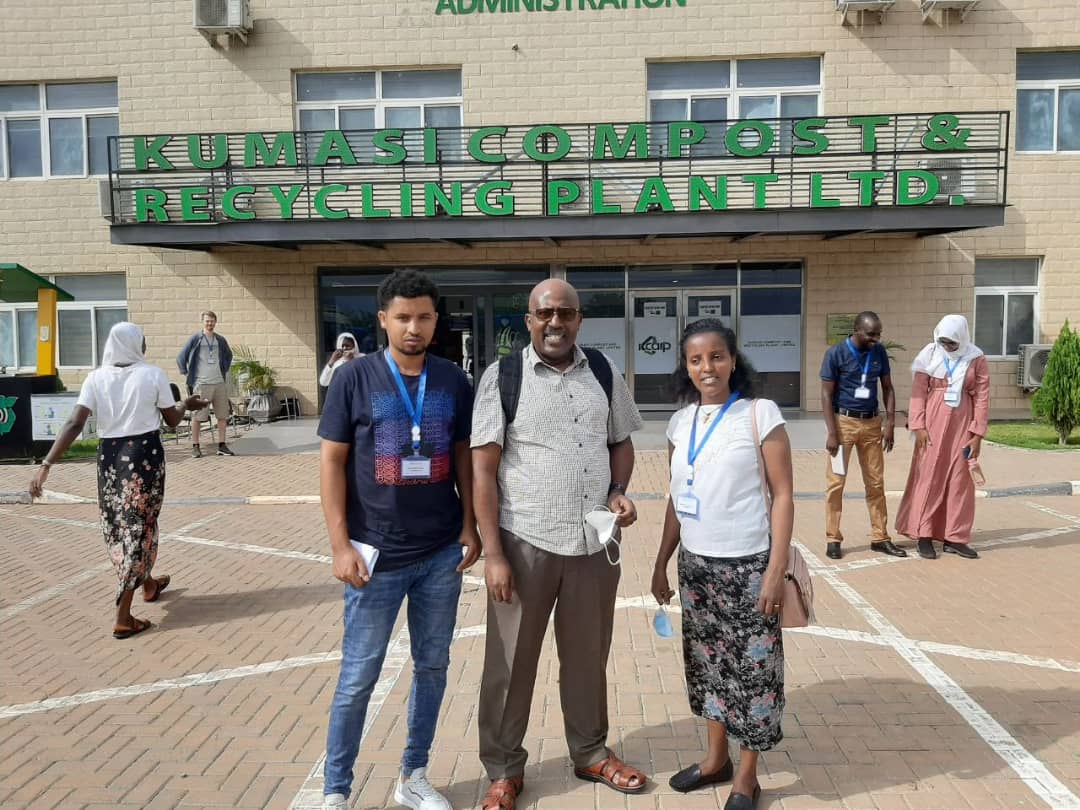
The one-monthsummer school programwhich is part of theAll4WasH project was held under the theme “Environmental Engineering Design Project”. The program brought three Centers of Excellencetogether namely the Africa Center of Excellence for Water Management (ACEWM) from Ethiopia, Regional Water and Environmental Sanitation Center Kumasi (RWESCK KNUST)in Ghana, The Nelson Mandela African Institution of Science and Technology (NM-AIST) from Tanzania and other partner universitiesin Mali, Uganda, South Africa.
The All4WasH project aims to strengthen inclusive education and research in sustainable water supply and sanitation in NTNU and the partner Universities through co-curriculum development, student and academic staff exchange, joint research projects, and co-supervision.The project will develop a relevant curriculum incorporating eLearning & blended learning to equip students with the transversal skills needed to be active participants in the knowledge economy of water and sanitation considering the SDGs.It will also establish research hubs to increase the quality of research and advance knowledge in the areas of circular economy, digitalization, governance, equity & inclusion, resource recovery, health, and climate change.
ACEWM being part of the All4WasH project, two of its MSc students SerkalemNigussie, MScstudent in Water and Wastewater Technology and SeworegnKibru, MSc student in Water Quality Managementtook part in this intensive summer school program.Both Serkalem and Seworegn are working at Addis Ababa Water and Sewerage Authority (AAWSA) and the training will help them acquire technical skills for their professionalroles at AAWSA in addition totheir academic endeavours and research projects. Prof Dr.-Ing Esayas Alemayehu, adjunct professor at ACEWM also attended the program as a facilitator.
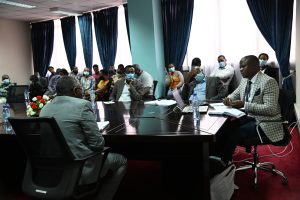
Ambrose Mubialiwo conducted his research in the field of Hydrology and Water Resources Management. His research ‘Hydrological and Hydrodynamic Modelling of Flows to Support Establishment of Flood Adaptation Strategies for River Malaba Sub-Catchment in Uganda’ focuses on flood adaptation strategies for predictive risk-based water resources management in River Malaba sub-catchment through the socio-hydrological approach. The Centre’s Director, academic staff, students, and online participants attended the session.

